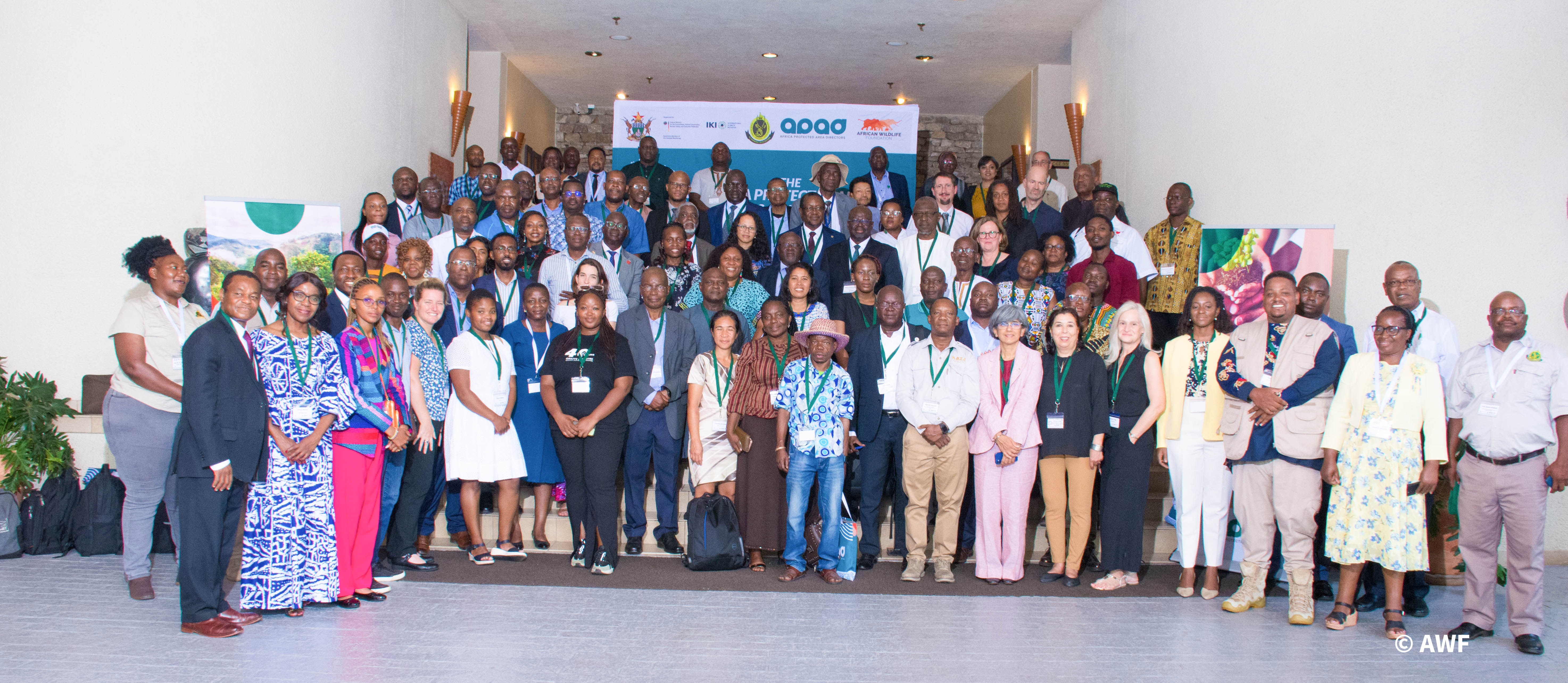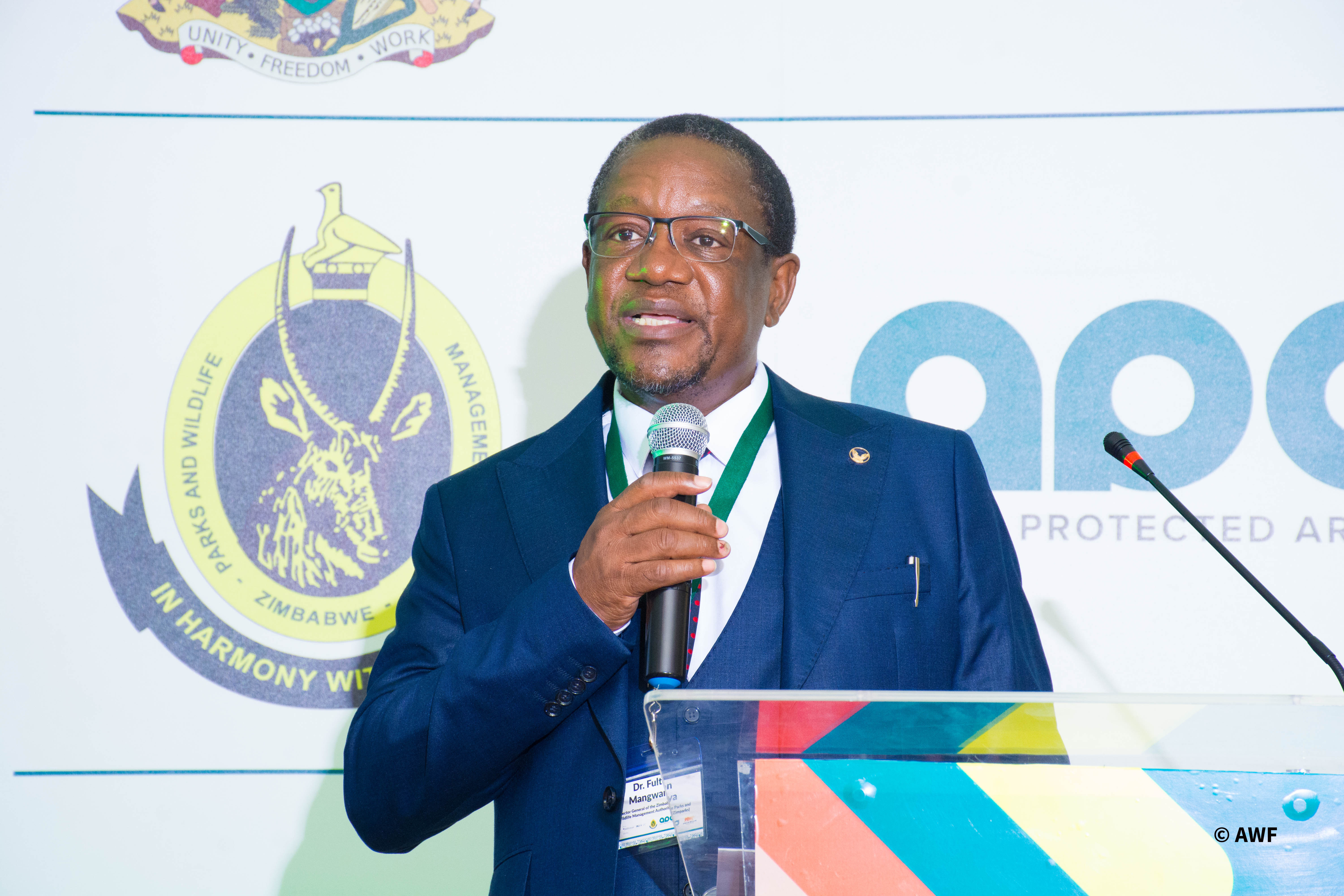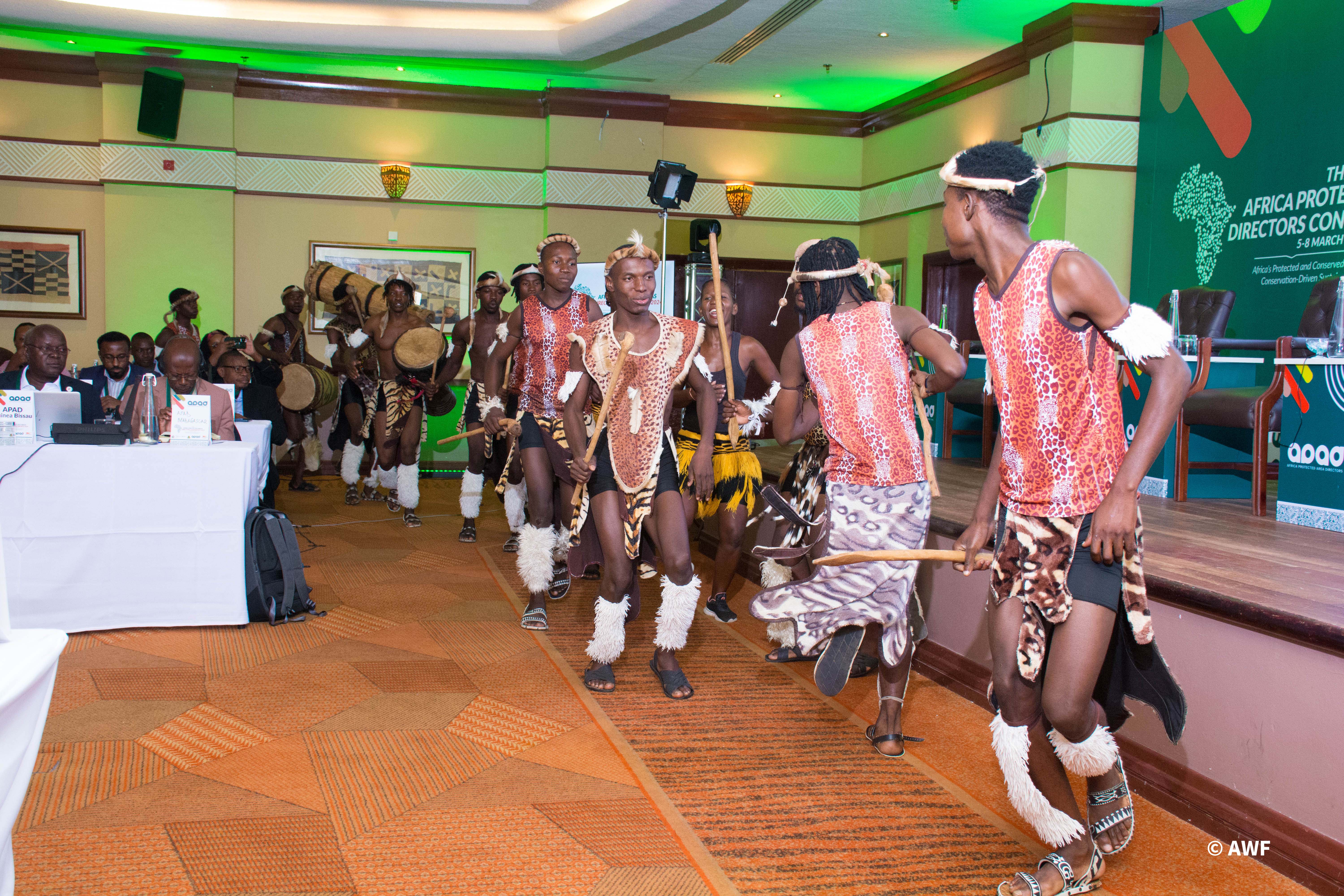Africa Protected Areas Directors 2024 Conference: Day 1 highlights

Conservation leaders from more than 25 African countries have gathered in Victoria Falls, Zimbabwe, for the second Africa Protected Areas Directors (APAD) conference.
The Conference hosted by the Zimbabwe Parks and Wildlife Management (Zimparks) and co-convened by the African Wildlife Foundation and the German Federal Government under the International Climate Protection Initiative (IKI) officially commenced on Wednesday.
Stakeholders representing Protected and Conserved Areas (PCAs), youth conservation experts, indigenous peoples, and local communities (IPLCs), and development partners emphasized the importance of partnerships in climate change adaptation and mitigation on the African continent.
With Africa’s youthful demographic in mind, young conservationists advocated for harnessing innovative mindsets through interventions such as establishing incubation hubs for PCAs. These hubs they said would empower youth to generate ideas addressing longstanding issues like Human-Wildlife Conflict.

Countries like Zimbabwe outlined various measures being taken in conservation, including a review of wildlife policy and laws in line with various resolutions from Multilateral Environmental Agreements (MEAs). These agreements like the Convention on Biological Diversity (CBD), the Convention on Migratory Species of Wild Animals (CMS), and the United Nations Framework Convention on Climate Change (UNFCCC) to solve community concerns.
Dr. Madhu Rao, IUCN-World Commission on Protected Areas Chair, said that drivers of change have accelerated in the past 20 years, prompting the global community to action. During her speech, she emphasized the importance of stakeholders coming together to form global partnerships, in order to ensure that interventions are implemented on a large scale. Sustainable financing should be at the center of all these efforts, and stakeholders were urged to make significant progress in sourcing, deploying, and managing finances effectively.
AWF CEO Kaddu Sebunya noted the need for partnerships to build a more sustainable future for Africa by cultivating a culture of investment in the continent’s natural heritage, ensuring sustainable funding models, and transparent resource allocation for long-term preservation.
Three high-level panel discussions that sought to explore ways to enhance PCA management and effectiveness outline the importance of PCAs in climate change adaptation and mitigation as well as finding ways to incorporate PCAs in Integrated Landscape Management dominated proceedings of APAD Day 1.
Malidadi Langa, Interim Chairperson of the Alliance for Indigenous Peoples and Local Communities for Conservation in Africa (AICA), emphasized that enabling policies and legal frameworks, strong governance, and capacity building are crucial for recognizing the roles of IPLCs. This includes involving all relevant stakeholders to promote inclusive and equitable benefit-sharing of resources and ensure meaningful engagement with IPLCs.
Aligned with the Kigali Call to Action, Harisoa Rakotondrafazy, Africa Adaptation Hub Coordinator at WWF Africa, proposed prioritizing PCAs as a first-line defense for climate adaptation and mitigation. This approach, she argued, could act as a nature-based solution addressing both crises simultaneously.

APAD Day 1 concluded with two working group sessions for development partners and African Non-State Actors, exploring opportunities for APAD's growth and development, as well as collaboration with civil society organizations (CSOs). These discussions highlighted key areas such as climate resilience, disaster preparedness, and sustainable financing – all priorities for APAD.
On day two, Dr. Philip Muruthi, AWF’s Vice President, Species Conservation and Science will lead a session on ‘Protected and Conserved Areas Governance Models’. Dr Muruthi will be sharing his insights alongside other key partners involved in the space. The momentum of the conference promises to pave the way for strengthened collaboration and impactful initiatives in the realm of Protected and Conserved Areas across Africa.
